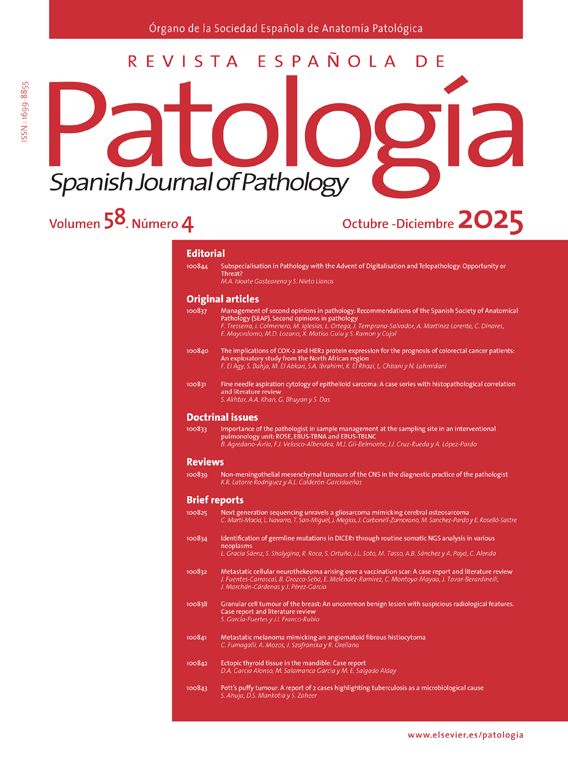El mundo de la Patología cobra sentido de la mano de la Oncología Clínica, donde técnicas y tratamientos, biomarcadores y anticuerpos, comparten el objetivo de hallar nuevas posibilidades de intervención, más eficaces, menos agresivas y más integrales. En esta búsqueda, la evidencia muestra como la mecánica tisular afecta la carcinogénesis y como la heterogeneidad tumoral depende de la alteración metabólica del estroma y del efecto Warburg de las células malignas, regulado directamente por PD-1 y diana del tratamiento inmunoterápico. Proliferación y apoptosis dependen de la disfunción mitocondrial de la célula tumoral que determina el grado de quimio- y radiorresistencia. El estado de la microbiota intestinal determina la respuesta inmune, la estructura del microambiente del tumor y la respuesta al tratamiento oncológico, y el receptor de la vitamina D permite la reprogramación del estroma tumoral.
En la actualidad, la colaboración entre los mundos de la investigación básica y clínica establece como zonas de desarrollo próximo el estudio del microambiente tumoral y la mecanoterapia molecular, el metabolismo y la inmunoterapia, la mitocondria y la oncogénesis, la microbiota y la quimioterapia, el eje psiconeuroendocrino y el desequilibrio homeostático, la epigenética y las posibilidades de reprogramación del fenotipo tumoral. De todos estos campos de conocimiento surgen nuevos biomarcadores, pronósticos y predictivos, que revisamos en este artículo al servicio de nuevas posibilidades de intervención terapéutica.
Pathology and clinical oncology work hand in hand so that techniques and treatments, biomarkers and antibodies share the common goal of identifying integral new treatment regimens that are more effective and less aggressive. Evidence shows how tissue mechanics affect carcinogenesis and that tumor heterogeneity depends on metabolic stromal alteration and the Warburg effect of malignant cells, regulated directly by PD-1, becoming a target for immunotherapy. Proliferation and apoptosis depend on mitochondrial dysfunction in tumor cells, determining the grade of chemo/radio-resistance. The status of intestinal microbiota regulates immune response, tumor microenvironment structure and oncologic treatment response, whilst the Vitamin D receptor allows reprogramming of tumor stroma.
Current collaboration between basic and clinical research paves the way for future investigation into areas such as tumor microenvironment and molecular mechanotherapy, metabolism and immunotherapy, mitochondria and oncogenesis, microbiota and chemotherapy, psychoneuroendocrine axis and homeostatic imbalance, epigenetics and reprogramming possibilities of the tumor phenotype. We review new prognostic and predictive biomarkers emerging from these fields of knowledge, opening up new therapeutic possibilities.













